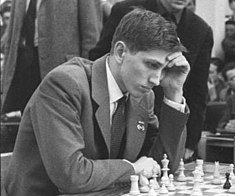 I have always been struck by Thomas Jefferson’s phrase “the pursuit of happiness” as it appears in the Declaration of Independence. In that document, he proclaimed that life and liberty are the basic and inalienable entitlements – absolute and automatic – of all human beings having been created equal by God. But he apparently held that happiness is not such a given and automatic state of entitlement. He only proclaimed that the new country would strive to guarantee for its citizens merely the right to pursue happiness.
I have always been struck by Thomas Jefferson’s phrase “the pursuit of happiness” as it appears in the Declaration of Independence. In that document, he proclaimed that life and liberty are the basic and inalienable entitlements – absolute and automatic – of all human beings having been created equal by God. But he apparently held that happiness is not such a given and automatic state of entitlement. He only proclaimed that the new country would strive to guarantee for its citizens merely the right to pursue happiness.
There is no outside power, governmental or otherwise, that can truly promise and achieve happiness for human beings. Happiness is a spiritual emotion, a character trait of the soul and not of the body. In the realm of spirit, there are no outside forces that can aid an individual in his or her quest for spiritual fulfillment. We can only pursue happiness; there is no promise or guarantee that we will ever truly achieve it.
Many of the problems that now afflict human society stem from the confusion of physical comfort with happiness. No one willingly preaches illness and poverty as a way of life. The idea of bodily self-mortification passed from the scene in Europe in the late Middle Ages (though it still resonates within certain Catholic orders even today.) It is a fact of life that good health and a modicum of comfortable living are necessary in order to help generate a feeling of inner happiness.

But these are only means to an end, a combination of tools to use to try and fashion happiness in our lives. They are definitely not the end in itself. But for many in our world, these means have become the end – the goal. They will always be engaged in the tiring pursuit of happiness without ever having the ability to obtain it for themselves in a contemplative, spiritual moment.
Though Thomas Jefferson was undoubtedly a great intellect, a skilled political leader, and, I have never been given to carefully dissect his writings in order to discover subtle philosophical nuances there. I am more likely to seek wisdom from the Torah. And King Solomon, wisest of the wise, stated: “All of the ways and words of the world are exhausting.” And so they are. We are comparable to greyhounds in training, dogs chasing a mechanical rabbit they will never catch up to. There can be little wonder that our world is plagued by depression and frustration, violence and bitter divisions. No matter how diligent we may be in our pursuit of happiness, for many people, the goal is completely elusive and the chase doomed to failure.
As Jews, it is only natural that we should frequently consider and assess our true spiritual state of being. We all have problems that confront us – family, health, finances, etc. – that disturb our pursuit of happiness, but King David, who had more than his share of problems, exclaimed in Psalms: “Were it not for the Torah of Yours that gladdens me, I would be lost in the poverty of troubles that surround me.” In other words, King David explains, only in the pursuit of Torah and spirituality can we escape the poverty and depression of an empty soul.

I suspect that the true secret to happiness lies in the commandments for that happiest of holidays, Succos. After the High Holy Days of Rosh Hashana and Yom Kippur, when we’ve fed and built up our souls, we must depart our homes and physical comforts temporarily into little huts, the succos. And there, we do not just pursue happiness but actually achieve it. In being granted the right to pursue happiness, we should remember the words of the great rabbis of the Mishna: “A moment of spiritual happiness in this life is greater than all of the rewards of the World to Come.”








